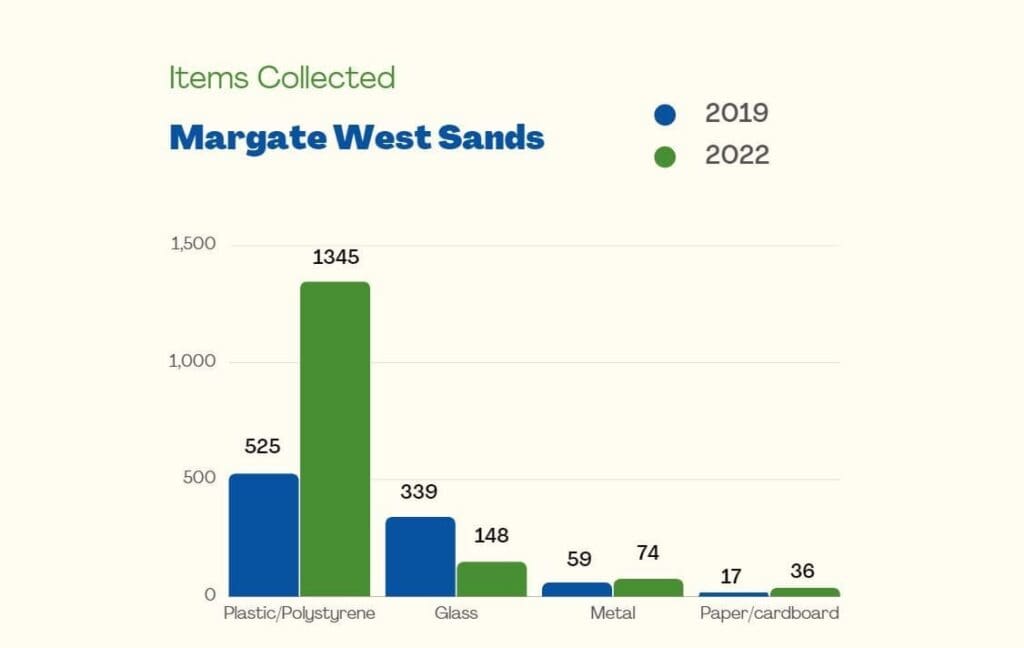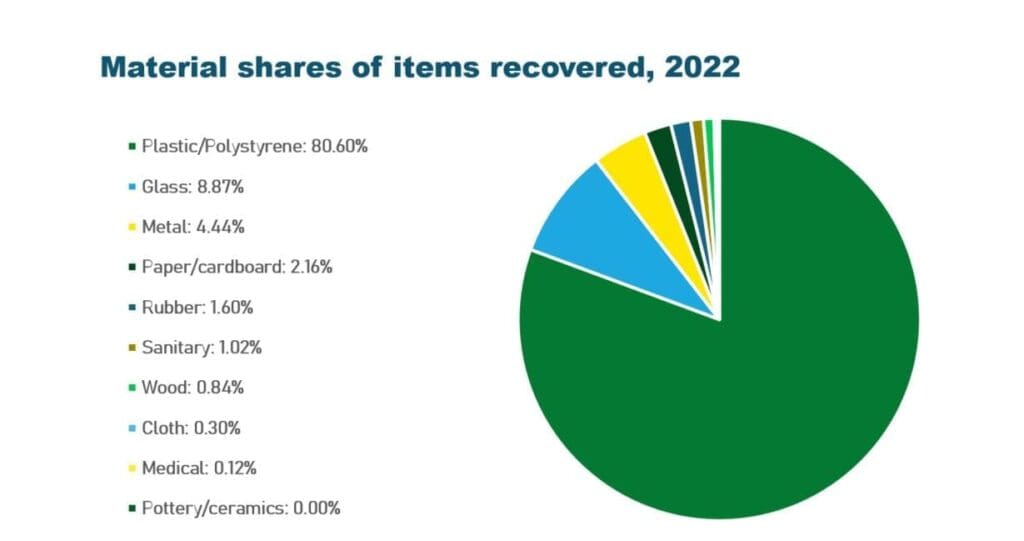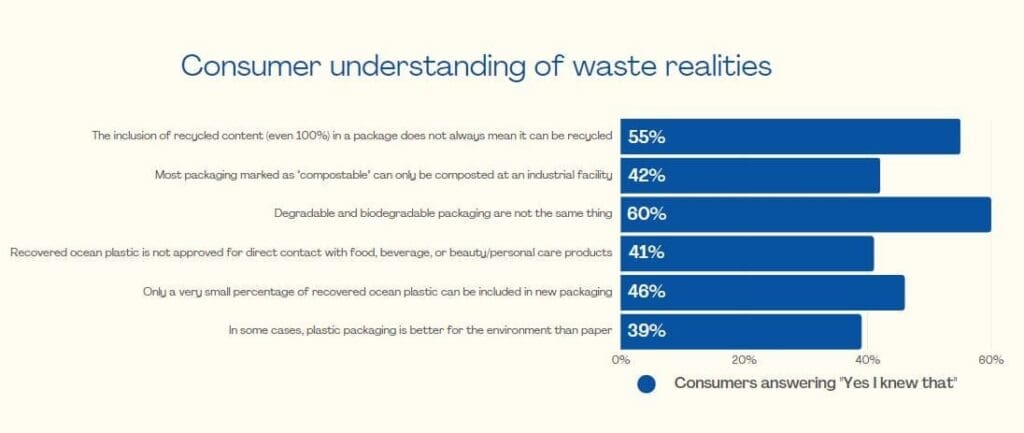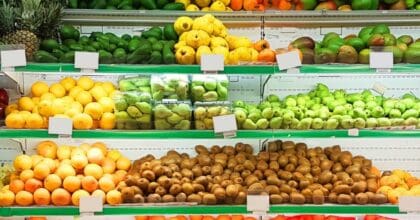Mintel recently conducted its third annual beach clean at Margate’s west sands in south east England, delivering actionable data to the Marine Conservation Society (a charity working for cleaner and better-protected oceans), as well as valuable lessons for colleagues about their own behaviours and impact. With COP27 underway, there is a need to engage and mobilise people towards its goals. A beach clean is part of that process of engagement and activation. Whilst it lacks the emissions impact of something like stopping buying meat or new clothes or installing home solar, it is a crucial step to grow awareness and build on the belief currently held by 51% of people that their behaviour “can make a positive difference to the planet” (Mintel Sustainability Barometer).
Plastic pollution growth
The OECD Global Plastics Outlook study projects that plastic waste produced globally will triple by 2060, whilst Surfers Against Sewage estimates that 8 million pieces of plastic are entering the oceans each day. In the three years that Mintel has been visiting Margate west sands beach we’ve seen notable shifts in the volumes and types of material removed that reflect this global trend. If we compare our June 2019 and September 2022 cleans (which used a similar number of volunteers on the same stretch at low tide) we can see a 156% growth in the number of plastic items removed. As this beach is cleaned regularly by other volunteers, the post-summer factor for the 2022 clean is negligible and it’s worth noting that 1,668 total items recovered – pardon the pun – trashes the average of 385 litter items found per 100m of beach surveyed at last year’s Great British Beach Clean. As a tourist destination, Margate’s litter problem is more severe, with many of the items recovered being land-side rather than tidal in origin. The plastics recovered accounted for 80% of all items and ranged from indeterminate fragments to fishing line, hundreds of cigarette butts, to standout items like sandals, sunglasses!
As our clean continued westwards beyond the surveying stage, the overall volume of waste removed swelled to 87kg, inflated by some sizable, weighty items such as painted planks, towels and a nitrous oxide canister.
Source: Mintel.
Source: Mintel.
Data for changing consumer behaviour
The sobering realisation for our volunteers was that most of this 87kg of waste was destined for landfill, rather than being reborn as recycled material. Despite laudable efforts by groups like Terracycle in ‘downcycling’ recovered ocean plastic into billboards or fencing, only a very small percentage of recovered ocean plastic can be included in new consumer packaging due to contamination, yet only 46% of consumers reported understanding this in our latest Sustainability Barometer report.
The real value in removing this waste – beyond preventing environmental pollution and damage – is in the data it provides – something that Marine Conservation Society effectively weaponises in its lobbying and campaigning efforts. It notes on its website:
“We have been running our national beach cleaning and litter survey work for nearly 30 years. This means we now have decades of data at our fingertips. This data is hugely important as it helps us track the common items we find on our beaches and then campaign for change. This evidence is used to lobby Governments for legislative change, as well as to influence industry practices and to drive campaigns that lead to changes in individual behaviour. From the plastic bag charge to banning microplastics in personal care products your data has helped to make some of the biggest and most significant impacts on beach litter ever.”
A sea change in consumer and corporate thinking is required
The wider work of MCS encompasses campaigning for Marine Protected Areas and sustainable fishing practices and against plastic, chemical and sewage pollution highlights how beach cleans can be a gateway to awareness of and personal action on wider – and often bigger – issues.
Mintel’s Sustainability Barometer shows that 46% of UK consumers cite ocean plastic as a top three environmental concern, whilst just 19% list loss of biodiversity in the oceans and 16% chemicals entering the environment.
If we consider the marine conservation group SeaShepherd’s revelation that 46% of plastic in the Great Pacific Garbage Patch is actually fishing nets, or that a healthy seagrass meadow can store almost three times as much carbon as an equivalent territorial forest, then the importance of advancing the educational and commercial conversation beyond packaging to conservation becomes clear.
Joining a beach clean – as anyone can do – is part of that process for consumers, helping them to question their own purchasing and disposal behaviours as well as the need for better collection and recycling infrastructure in their communities and countries.
The same goes for consumer facing companies. My original MCS beach clean training session in Brighton delivered a priceless, painful insight for the alcoholic drinks company who’s away day we were supervising – when we found one of their discarded, dangerously broken, starkly branded bottles and logged it accordingly.
The aforementioned misconceptions around the recyclability of recovered ocean plastic are produced – and I would argue sometimes actively encouraged – by extremely low-scale launches of products “containing recovered ocean plastic” that are often marketing plays, rather than genuine manufacturing shifts. At Mintel we’ve seen less than 500 consumer product launches with ocean/social plastic claims in the past five years on our GNPD database. Many products claiming to be 100% ocean plastic are in fact ‘ocean bound’ plastic, which means they are recovered and recycled from a market lacking collection infrastructure.
Greenwashing – why brands should avoid it
Companies need to gravitate away from greenwashing gimmicks that amount to distracting PR sheen rather than actual actions at scale (and I include many resource-intensive, unprocessable “biodegradable” products in that bracket) by doing more: supporting infrastructural improvements, researching recyclability innovations and improving on pack disposal messaging. It’s these efforts that genuinely close loops and prevent materials, energy and water being wasted and further emissions being generated from incineration or landfill. Plastic’s durability, lightness and relative energy efficiency in recycling is why it will continue to dominate in packaging, but that has to be as a circular material.
Being honest with consumers about this (as Patagonia famously did) – rather than screaming a simplistic “plastic free!” – is part of a process towards respecting both the environment and your customers.
For our volunteers, this visit to Margate was both a reality check and a thought starter, sparking questions about their broader impact on the environment and the personal and societal changes that could make a difference. As more citizens and customers become engaged and activated in this way by the work of MCS and others, companies will need to keep pace with their developing understanding about which problems and which solutions are genuinely most impactful.
Source: Mintel.
Do you want to:
- Learn more about how engaged your customers and competitors are in sustainability?
- Make your products land with customers?
- Understand why sustainable product demand will grow?









































